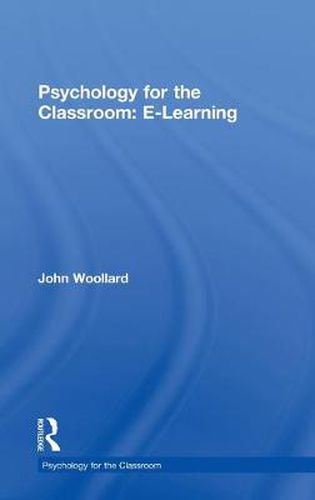Readings Newsletter
Become a Readings Member to make your shopping experience even easier.
Sign in or sign up for free!
You’re not far away from qualifying for FREE standard shipping within Australia
You’ve qualified for FREE standard shipping within Australia
The cart is loading…






Psychology for the Classroom: E-Learning is a lively and accessible introduction to the field of technology-supported teaching and learning and the educational psychology associated with those developments. Offering a substantial and useful analysis of e-learning, this practical book includes current research, offers a grounding in both theory and pedagogical application, and contains illustrative case studies designed to stimulate thinking about technology and education. The author places particular focus on the developing theory and practice of cybergogy as well as interpretations of conventional theories such as behaviourism, cognitivism and constructivism in the context of e-learning. The book also explores how these developments provide new opportunities, contexts and environments for learning, including: virtual learning environments; social networking; personalisation; social justice; cyber-bullying and e-safety; blended learning; avatars and virtual worlds; cybergogy and new learning domains. This unique text will appeal to all practising teachers and students alike and provides a valuable and practical guide to the theory and application of e-learning.
$9.00 standard shipping within Australia
FREE standard shipping within Australia for orders over $100.00
Express & International shipping calculated at checkout
Psychology for the Classroom: E-Learning is a lively and accessible introduction to the field of technology-supported teaching and learning and the educational psychology associated with those developments. Offering a substantial and useful analysis of e-learning, this practical book includes current research, offers a grounding in both theory and pedagogical application, and contains illustrative case studies designed to stimulate thinking about technology and education. The author places particular focus on the developing theory and practice of cybergogy as well as interpretations of conventional theories such as behaviourism, cognitivism and constructivism in the context of e-learning. The book also explores how these developments provide new opportunities, contexts and environments for learning, including: virtual learning environments; social networking; personalisation; social justice; cyber-bullying and e-safety; blended learning; avatars and virtual worlds; cybergogy and new learning domains. This unique text will appeal to all practising teachers and students alike and provides a valuable and practical guide to the theory and application of e-learning.